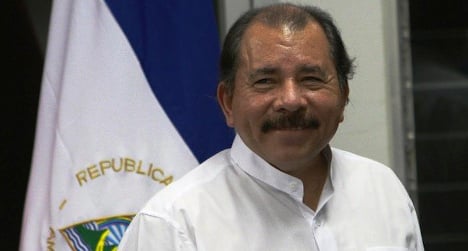The International Studies Center, or CEI by its Spanish acronym, took out newspaper ads accusing Deputy Foreign Minister Valdrack Jaentschke of intervening to prevent the group from signing a cooperation agreement with Norway.
"We are facing an act of abuse of power that violates constitutional rights and the international convention of human rights, which we hope will be rectified," the CEI said.
"We ask the government of Nicaragua to publicly clarify the reasons that it is ordering international cooperation to suspend the financing of the CEI and block the work it is doing," it said.
The Nicaraguan foreign ministry had no immediate response to the accusation.
The CEI is headed by Zoilamerica Ortega Murillo, who in 1998 brought a complaint accusing Ortega of sexually abusing her when she was 11 years old.
The case was dismissed because the statute of limitations had expired.



 Please whitelist us to continue reading.
Please whitelist us to continue reading.
Member comments